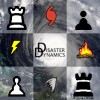Teaching Introduction
Hurricane Landfall is a computer game designed to provide its players with experiential insights into real-world issues like decision-making, complex systems, collaboration, and urban growth. Instructors can tailor the game's lessons to their curriculum by their choice of what to focus on in the post-game debriefing. The following list of discussion topics describes some of the many subjects that are incorporated into Hurricane Landfall gameplay.
Decision-Making
Windows of Opportunity
An ounce of prevention may be worth a pound of cure, but it can still be hard to gain support for proactive mitigation, in contrast to our general willingness to invest in large-scale recovery after a disaster strikes.
Making Decisions Under Uncertainty
Uncertainty is always present when decisions are made. Complex processes like community planning often require that important decisions be made in the face of great uncertainty.
Making Unpopular Investments
When natural disasters strike, our natural inclination may be to put things back the way they were. Sometimes the policy that will have the most positive impacts on the community will also be the least palatable, especially if it involves making significant changes.
Complex Systems
Holistic Thinking
A community is a system composed of many interacting elements, and the whole is greater than the sum of its parts. A holistic perspective is needed to ensure the health of the entire system, or decisions made to help one part can end up harming another.
Long Term Effects of Choices
The choices that a community makes now will affect the choices that it can make in the future. Communities experience long-term effects from short-term thinking and decision-making. Early decisions can introduce surprising consequences that affect people in unforeseen ways.
Think Globally, Act Locally
Local decisions oftentimes have global consequences, linking them to both great responsibility and opportunity. The primary consequences of a decision are felt both immediately and locally, but the secondary and often unanticipated consequences are usually felt at a later time over a larger area. These secondary consequences can then interact, creating an even greater ripple effect.
Real-World Decisions
Problem-Solving and Negotiation
Collaboration, negotiation, and problem solving are interrelated life skills best acquired through experience. Making proposals, expressing opinions to other constituents, resovling conflict, and gathering support for initiatives are all tasks that require effective communication and are required for successful community planning.
Managing Limited Resources
Limited budgets require players to compromise and prioritize in order to achieve their goals. When only the early contenders can be chosen, setting the agenda is a way of claiming power.
Competition vs. Cooperation
Community decisions are political, and politics is usually competitive. While the word "game" usually connotes an exercise in competition, cooperation is often most beneficial to community planning and development. You don't need someone else to lose in order to win; not all games are zero-sum.
Treat Causes, Not Symptoms
Although some problems are unpredictable by nature, problems that get ignored usually come back. Responding to the effects of a problem without addressing the root cause is usually an invitation for it to return, often more severely and possibly in conjunction with a new problem.
Growth
Growth and Hazard
Hazards only matter when they happen where the people are. Growth affects hazard exposure both by increasing the number of people in harm's way, and by shaping the landscape of attraction that determines where people will settle.
Growth Rate Imbalances
Some proposals affect different aspects of a community differently. When one part of a community grows faster (or slower) than the others, it can lead to systemic imbalances that create new problems and change the community's character.
Benefits of Planned and Gradual Growth
Rapid growth increases the potential for problems and may leave communities ill-equipped to handle the invisible hazards that piggyback their growth. Well-thought-out growth can mitigate imbalances and keep communities robust.
The Difficulties of Gauging Success
Because prevented problems are invisible, it is difficult to gauge community progress and money well spent on successful mitigation. Obvious small problems can steal the spotlight from large but subtle ones.
Infinite Games
There is no real ending to a community's growth and evolution. The goal of the game is not to "win"; it's to develop a community that people want to live in both now and in the future.
